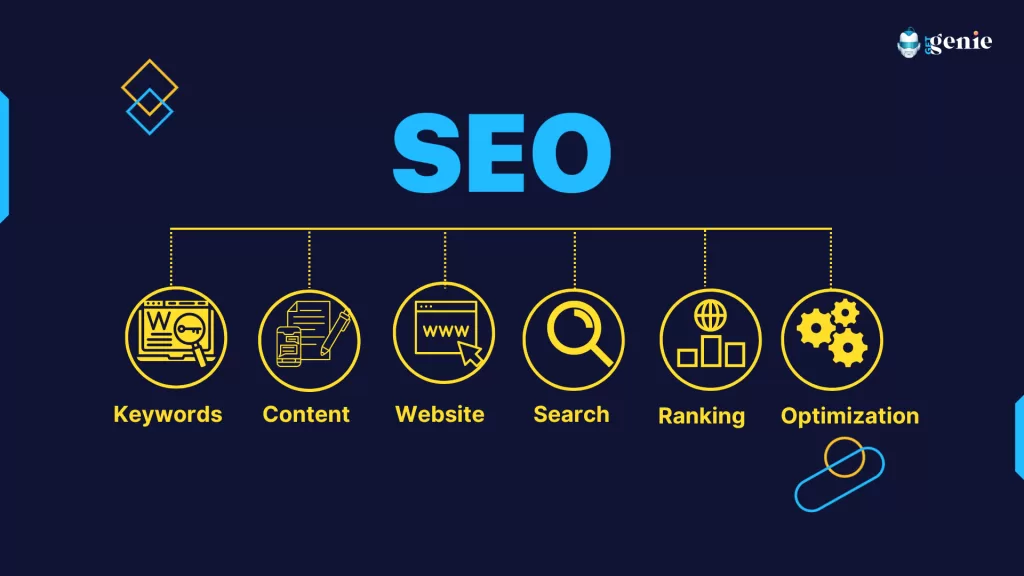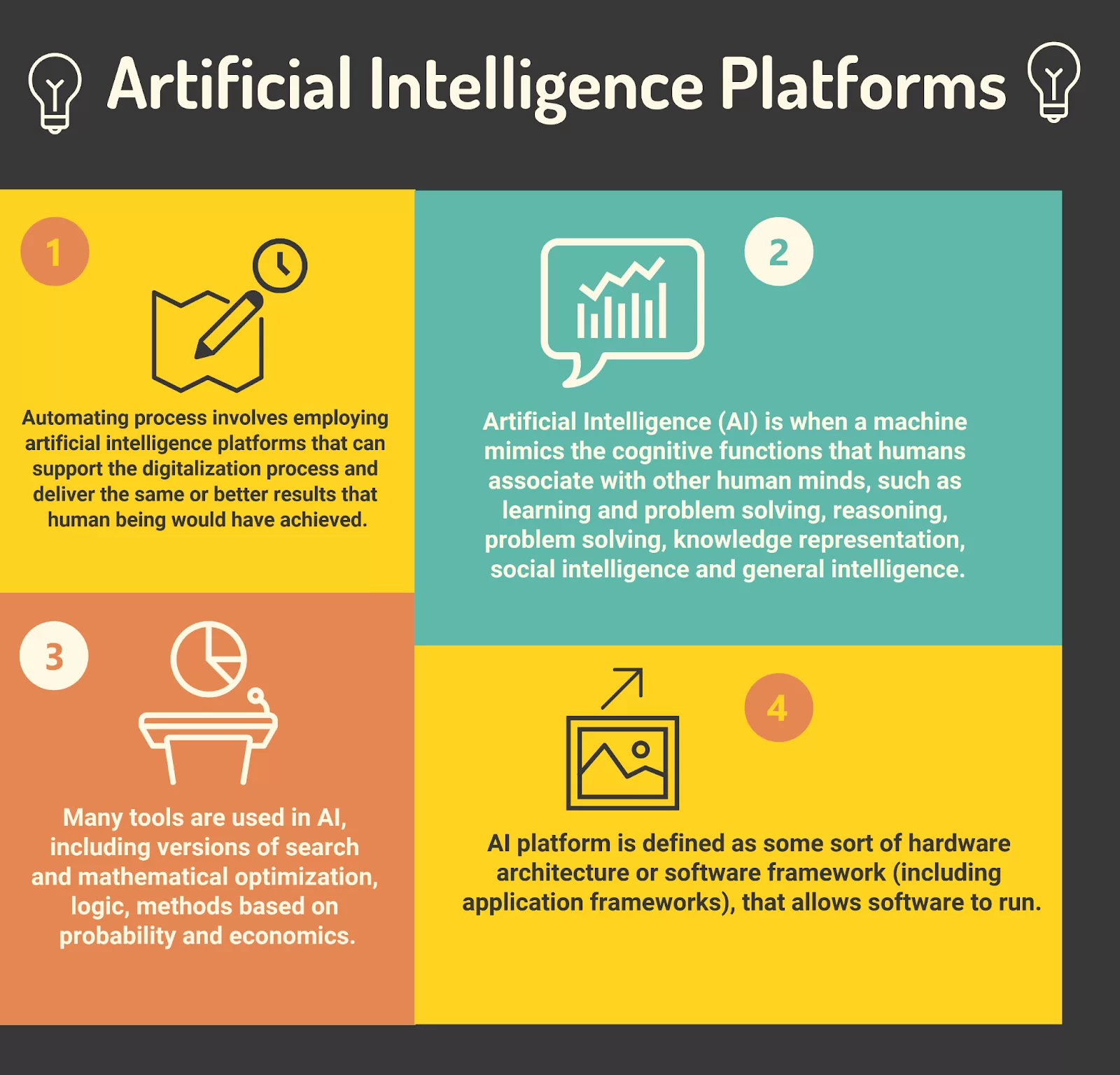
If there’s one constant in search engine optimization (SEO), it’s that it is perpetually evolving. In the last several years alone, the (thankful) end of poor-quality content and keyword stuffing has fundamentally changed how we approach SEO. New paradigms like satisfying user intent, capitalizing on social media, and publishing longer posts have all altered the landscape. Now, we face another major shift: using AI for SEO.
Artificial intelligence (AI) has radically altered nearly every industry by automating processes and managing tasks once delegated to humans — and that’s just the start of its power and potential. In the realm of digital marketing, 61.4% of marketers leverage AI. It’s now consistently being used for SEO purposes.
Why might this be? The answer is simple: It has proven to be effective and valuable, with more than 80% of marketers claiming that adopting AI has delivered fast, substantial results.
But what role does AI play in SEO, exactly? And how can it be leveraged to grow your business? Keep reading as we delve into using AI for SEO and the promise it holds.
What Is AI for SEO?

AI for SEO refers to the AI-powered tools that maximize your SEO game plans and practices. With the assistance of SEO AI tools, you can create tailored optimization strategies to fulfill your objectives.
This is possible due to the analytical powers that SEO AI tools possess. AI can determine the best tactics to fuel those coveted first-page results by examining the relationship between keywords, search intent/queries, content, and search results. These analyses offer actionable insights that can shape your overall SEO strategy.
What Are the Applications of SEO AI Tools?
Using AI for SEO provides you with the tools to accomplish essential tasks such as:
Pinpointing Opportunities
AI SEO content writing tools have a nearly omniscient perspective that benefits brands significantly. They assess the digital dialogue on subjects associated with your industry to identify trending topics, thereby helping you craft timely and relevant content. Topic ideation is among the most challenging tasks required of creators and SEO specialists; using AI for SEO helps solve this.
Identifying Content Gaps
AI SEO content writing tools can also look for content gaps — or the chasm between search queries and existing content on the subject. This enables you to create content that fulfills those identified needs. As a result, you may stand out from your competition while also strengthening your reputation and building authority.
Making Optimization Updates
One of the boons of solid, SEO-optimized content is that it can be repurposed. The longer a piece of content — such as a long-form blog — remains on your site, the more your search rankings may improve.
That said, the content you maintain needs to be refreshed to remain optimized and topical. AI tools for SEO can update links and provide optimization automatically, taking manual labor out of the equation and allowing you to focus on other SEO and general business matters.
Creating Effective Content Strategies
The number of AI SEO content writing tools is increasing exponentially, furnishing marketers with a selection of platforms from which to choose. Some of the most valuable SEO AI tools take over tasks that SEO experts have historically handled. For example, ContentGeniusFX can supply you with key information to produce the best blog possible, such as:
- A recommended word count for your post
- A recommended number of sections
- Keyword recommendations
- Related keyword suggestions
- Helpful title tags
Analyzing Search Engine Algorithm Updates
Google’s algorithm is updated an estimated 500 to 600 times per year. While most of these tweaks are minor and irrelevant, you can encounter penalties and lower rankings if you overlook more significant updates. AI can be used to track those updates to ensure your content remains on the cutting edge.
Leveraging Voice Search
From Siri to Alexa, we’re consistently turning to voice searches to have our questions answered — and SEO will continue to work to address this. Data indicates that there will be 8.4 billion voice search assistants by the year 2024. AI tools such as Frase can help you craft SEO-optimized content that directly answers these voice queries.
Additionally, AI semantic SEO, or the act of deepening your digital content and making it timelier, can dramatically improve the user’s search experience while earning you a higher placement on SERPs. RapidMiner and MeaningCloud, for instance, operate as AI semantic SEO tools to provide you with key insights and even enhance your brand’s messaging.
AI is also applied to analyze website traffic and performance at a pace that exceeds human capabilities. And if you’re looking to bolster the reach of the videos you publish, AI video SEO software can be an extremely useful tool.
In sum, using AI for SEO helps you solve problems that are ubiquitous in SEO. From identifying the most valuable keywords to ensuring your written content adheres to your brand’s voice, identity, and standards, AI can help bring your SEO practices to the next level.
What Are the Benefits of Using AI for SEO?
First and foremost, implementing AI for SEO accelerates the process, freeing up time to evaluate analytics, concentrate on link building, and more. Using AI for SEO also:
- Improves keyword accuracy
- Enriches customer satisfaction by answering their search queries
- Builds trust and authority with your audience
- Increases your chances of appearing on Google’s “People Also Ask” search results
- Enhances link-building strategies
Moreover, AI tools for SEO help digital marketers accomplish one of the ultimate goals of SEO: increasing lead generation and boosting conversions. And while the use of AI may seem anti-human in a way, it may bring more humanity to your content.
For example, Chase Bank worked with Pesardo, a marketing firm that leverages AI-powered tools for digital marketing. The use of AI helped infuse Chase Bank’s marketing materials with a stronger sense of humanity when one of their campaign mottos was modified by AI to sound more conversational, honest, and authentic.
What Are the Best Practices for Using AI for SEO?
Employing AI tools for SEO doesn’t necessarily mean that there isn’t anything for you to do. Skill sets that only humans possess, such as sound judgment, are still required for successful practices. With this in mind, you should consider following the below practices to get the most out of using AI for SEO:
Continue to Perform Research
If you choose to use AI to craft a first draft of website copy or a blog post, you still must use your own logic and creativity: Google doesn’t necessarily penalize AI-generated copy, but it does penalize clunky, poorly researched, and low-quality content. AI can give you a jump start on your research, but the onus remains on you to investigate and confirm its veracity.
Edit and Write with the User Experience (UX) in Mind
If you’ve seen any of the examples of AI- vs. human-generated content on social media, you know that AI has yet to achieve the level of fluidity, or the voice and personality, that skilled writers possess.
You might want to use AI to do some of the heavy lifting and more tedious tasks, like identifying keywords, but it’s best to reserve the actual composition of content and editing for your team. Search Engine Land is just one expert that implores the use of 50% AI and 50% human intelligence.
Double Check for Plagiarism
One of the drawbacks of using AI for SEO is that it can pull content from other entities on the web — and we all know that duplicate and plagiarized content is a gigantic red flag for search engines. You can work toward mitigating this issue by also employing tools like Copyscape.
Above all, though, you should ensure that every piece of content composed or helped by AI goes through human hands before being published.
What Are the Best SEO AI Tools?
Intrigued by the thought of using AI for SEO? You may want to explore these topnotch tools:
Alli AI
Not only can it be fused with several content management systems, including Shopify, but Alli AI also offers custom automated, self-adjusting algorithms to remain in line with SEO best practices. It also automates:
- Title tags
- Meta descriptions
- Image alts
- Link descriptions
Alli AI has a sterling reputation as one of the most efficient and beneficial AI-powered SEO tools on the market.
Surfer SEO
Lenovo, ClickUp, and Shopify are just three of many big names that rely on Surfer SEO’s ability to increase visibility and rankings. It allows you to discover high-ranking keywords and explore related topics that tap into niche interests. Surfer SEO’s auditing capacities will also enable you to:
- Identify errors
- Assess page speed
- Confirm keyword density
- Evaluate for missing backlinks
These are only two tools from a pool of many. The bottom line, though, is that using AI for SEO may help you create optimized content at a faster rate, rising above the noise of the internet and always remaining relevant — even in a rapidly changing world.
Using AI for SEO: Key Takeaways
AI tools for SEO are increasingly employed to drive performance, namely in terms of topic ideation, content relevance and quality, analytics, and keyword precision. As an SEO expert, you know that SEO is an intricate and often time-consuming process. AI expedites this process while helping make content more targeted, topical, and accurate.
But even the most sophisticated SEO AI tools require human intervention. If you’re interested in using AI for SEO, remember that it’s the most effective and valuable when paired with your creative mind and hard-earned skillset.

